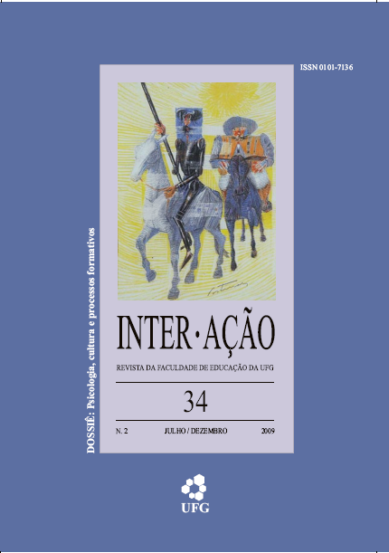TIME AS A BIND OF EXPERIENCE: ORPHEUS AND THE OBSTACLE OF REMEMBRANCE
DOI:
https://doi.org/10.5216/ia.v34i2.8502Abstract
In this article, the category of time is analyzed as the axis to the historically established relationships undertaken between the individual and culture. Through this category the elements which bind experience and obstruct the formation of remembrance are analyzed. Help is sought from another field of knowledge, the myth, for the light it can cast on the historical relationships of domination between the individual, culture and time, as well as the possibilities unaccomplished by culture. Hence, the Myth of Orpheus and the way that Marcuse analyzes the image of Orpheus as a liberator, by using signs of a distinct time of its given solidification in a culture governed by the logic of domination. A dialogue is also established with Horkheimer and Adorno’s considerations with regard to this issue.Downloads
Downloads
Published
How to Cite
Issue
Section
License
Inter-Ação uses the Creative Commons Attribution 4.0 License for Open Access Journals (Open Archives Initiative - OAI) as the basis for the transfer of rights. Open access means making documents available on the Internet free of charge, so that users can read, download, copy, distribute, print, search, or link to the full text of documents, process them for indexing, use them as input data for software programs, or use them for any other lawful purpose, without financial, legal, or technical barriers.
Authors publishing in this journal agree to the following conditions:
1) Authors retain copyright and grant the journal the right of first publication, with the work simultaneously licensed under the Creative Commons Attribution License, which permits redistribution of the work with attribution and first publication in this journal.
2) Authors are permitted to enter into additional, separate agreements for non-exclusive distribution of the version of the work published in this journal (e.g., for publication in an institutional repository or as a book chapter), with attribution and first publication in this journal.
3) Authors are permitted and encouraged to publish and distribute their work online (e.g. in institutional repositories or on their home page) at any time before or during the editorial process, as this may generate productive changes as well as increase the impact and citation of the published work.















